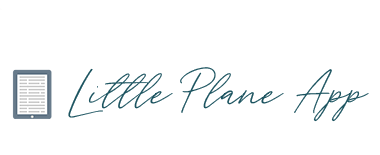My neck twinged as I tilted my head, eyes scanning. Not a spreadsheet, not a proposal, but the faint reflection of my own meticulously arranged bookshelf in the corner of my screen. Somewhere, in the distant digital ether, a colleague was talking about Q4 projections, but I was mentally auditing their credentials based on the visible spine of a 1976 edition of “The History of Western Art.” It’s a ridiculous habit, one I both despise and indulge with equal fervor. We’re all doing it, aren’t we? Judging the curated, digital slices of someone else’s life, while simultaneously agonizing over our own.
We tell ourselves this obsession with the perfect Zoom backdrop is about professionalism. It’s about appearing organized, serious, perhaps even subtly intellectual. A quiet assertion that, despite the chaos of working from home, we are still very much ‘on it’. But what if it’s not about professionalism at all? What if it’s a new, exhausting form of emotional labor, an unacknowledged burden that collapses our personal and professional identities into one performative space?
The initial shift to remote work gifted us a strange intimacy. Suddenly, we were seeing into each other’s homes – a child’s drawing tacked to a wall, a partner walking through the background, a glimpse of an unmade bed. The early days were marked by a refreshing authenticity, a shared vulnerability. But that didn’t last long. Not for 6 months, not for 16, and certainly not for the 236 days I’ve now spent staring at my own carefully selected potted plant. The authenticity quickly gave way to aspiration, and aspiration, to a kind of digital theater. Our homes, once sanctuaries, transformed into stages.
Success Rate
Success Rate
Consider Sophie C., an archaeological illustrator. Her work demands precision, an almost forensic attention to detail. Yet, I found her describing the hours she spent not sketching ancient pottery, but agonising over the precise angle of a travel-worn globe, or the strategic placement of a single, non-distracting fern on her office shelf. “It’s absurd,” she told me, a tight line in her jaw. “My actual desk is a disaster zone of charcoal dust and half-eaten biscuits. But the 46 square inches visible on camera? That’s pristine. It has to be.” She acknowledged the contradiction, but felt trapped by it, convinced that an errant pile of laundry in the background would somehow diminish her perceived expertise in Minoan frescos.
This isn’t about avoiding genuine messes. It’s about the subconscious pressure to project an ideal. The boss with the floor-to-ceiling bookshelf isn’t just showing off their literary tastes; they’re performing intellectual gravitas. The colleague with the minimalist white wall isn’t necessarily a minimalist; they’re demonstrating focus, a lack of distraction, a pure professional intent. We’ve all seen the LinkedIn posts, the tutorials on “how to build the perfect Zoom background for under $676.” The irony is thicker than a medieval manuscript. We’re investing real time, real energy, and sometimes, real money into this digital facade, often at the expense of what truly matters: the quality of our actual work.
I’ll admit, I’ve fallen prey to it. There was a time, roughly 16 months ago, when I was preparing for a critical client pitch. My apartment, small and lived-in, offered no truly ‘clean’ backdrop without a major reshuffle. My solution? I bought a roll of temporary wallpaper – a subtle, abstract pattern – and carefully applied it to the wall directly behind my monitor. It looked fantastic. Professional. Minimalist. Non-distracting. I spent nearly an hour on it, meticulously aligning the pattern, while the actual presentation slides sat open, half-finished. Did it help me win the pitch? Perhaps. Or perhaps, the client barely noticed and cared more about the data. But the mental energy expended, the quiet panic about the aesthetic rather than the substance, felt profoundly misdirected.
Insightful
Clear
And this is where the real problem lies. We’re diverting cognitive resources from strategic thinking, problem-solving, and genuine connection, into managing perceptions of our personal spaces. It’s not just about what’s on the shelf, it’s about the emotional toll of constant, low-level surveillance. Every meeting becomes a performance review of your taste, your tidiness, your ability to ‘have it all together’ in the face of blurring boundaries. It’s an exhausting tightrope walk. We’re expected to be authentic, but only within a carefully constructed frame.
This is why I find myself increasingly drawn to the idea of dedicated, elegant structural panels. Not a green screen, but something more substantial, more integrated into the actual living or working space. Something that creates a defined, clean aesthetic without requiring a Herculean effort to stage-manage your entire private life. For instance, well-designed
can transform the exterior of a building, but the same principle of clean lines and intentional design can be applied to create a sophisticated interior backdrop, effectively creating a dedicated ‘studio’ for remote work within your home, without turning your entire house into a perpetual film set. It’s about creating a defined, calm boundary, not just a temporary illusion. It’s about having a stage that works for you, rather than you working for the stage.
Our shared mistake is thinking that the solution to work-from-home pressures is more personal curation. The actual solution is less. Less distraction, less performance, more focus on the work itself. We need to stop mistaking a well-placed decorative bowl for true preparedness. The real professionalism isn’t found in the depth of field of your camera, but in the depth of your ideas. Perhaps it’s time we allowed our intellect, our creativity, and our genuine contributions to outshine our carefully chosen decor. What kind of work could we truly produce if we weren’t also constantly designing the backdrop of our lives?
